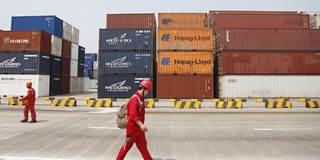In the second year of his presidency, Donald Trump started to fulfill his promised “America First” agenda by launching trade wars with allies and adversaries alike. In the absence of leadership from governments, the responsibility of responding to the populist disruption now falls to the business community.
NEW YORK – In 2018, trade, more than any other policy area, was “disrupted.” What used to be an archaic, technical, and – let’s face it – boring array of issues now dominates front-page headlines, magazine covers, and even John Oliver’s comedic documentaries on HBO’s “Last Week Tonight.” Constituencies that have traditionally opposed free-trade agreements (FTAs) are now extolling their virtues, and countries not known for their free-trade sensibilities – including China, Russia, and France – are nominating themselves as the defenders of the global trade system.

NEW YORK – In 2018, trade, more than any other policy area, was “disrupted.” What used to be an archaic, technical, and – let’s face it – boring array of issues now dominates front-page headlines, magazine covers, and even John Oliver’s comedic documentaries on HBO’s “Last Week Tonight.” Constituencies that have traditionally opposed free-trade agreements (FTAs) are now extolling their virtues, and countries not known for their free-trade sensibilities – including China, Russia, and France – are nominating themselves as the defenders of the global trade system.